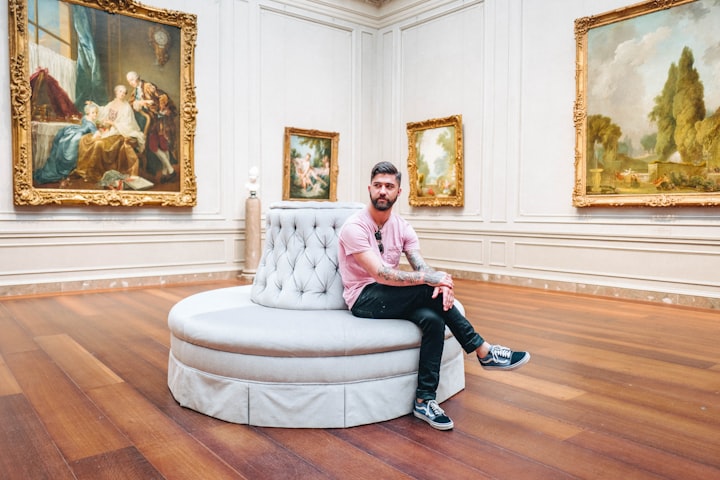
As a young girl, Sophia had always felt a strong sense of injustice towards the gender inequality she saw around her. It was a feeling that never left her, even as she grew up and entered the workforce. Sophia was determined to make a difference, and she found her calling in feminism.
Feminism was a topic that Sophia felt strongly about. She read books, attended conferences, and joined advocacy groups. She was passionate about fighting for equality and social justice for all women.
But it wasn't until Sophia started working at a nonprofit organization that she truly began to understand the scope of the problem. Her organization worked to provide education and resources to women in underserved communities. Sophia witnessed firsthand the barriers that women faced in accessing education, healthcare, and other basic needs.
Sophia knew that this was a larger issue than just her own experience. She started researching the history of feminism, from the suffrage movement to the current intersectional feminist movement. She read about the many women who had fought for equality and social justice over the years, from Susan B. Anthony to Gloria Steinem.
Sophia also discovered that feminism was not just about women. It was about breaking down the barriers that prevented anyone from achieving their full potential, regardless of their gender or other identities. She learned about the concept of intersectionality, which recognized that oppression and discrimination were not limited to gender, but were also influenced by factors such as race, class, and sexuality.
With this new knowledge, Sophia felt more empowered than ever. She realized that her work was not just about advocating for women, but about fighting for a more just and equitable society for all. Sophia started organizing events and workshops to educate others about feminism and the importance of social justice.
Through her work, Sophia met many inspiring women who were also passionate about feminism and equality. She met women who had experienced discrimination and oppression firsthand, and who were now using their voices to make a difference. She also met men who were supportive of the feminist movement and working to dismantle patriarchal systems of power.
As Sophia continued her journey with feminism, she saw progress being made. Women were breaking barriers in politics, business, and other industries. More and more people were speaking out against gender-based violence and harassment. Social media had become a powerful tool for raising awareness and organizing activism.
But Sophia also knew that there was still a long way to go. Women, especially those from marginalized communities, still faced systemic discrimination and oppression. The gender wage gap persisted, and women were still underrepresented in positions of power and leadership.
Sophia remained committed to the fight for feminism and social justice. She knew that progress would be slow, but she was determined to continue the journey. She found hope in the fact that more and more people were becoming aware of the need for change, and that the feminist movement was becoming more intersectional and inclusive.
As Sophia looked back on her journey, she realized that feminism was not just a cause or a movement. It was a journey towards social justice, one that required constant learning, growth, and action. And she was proud to be a part of it.
Sophia's work had led her to realize that feminism was not just about advocating for women's rights, but also about recognizing the interconnectedness of all social justice issues. She began working with other advocacy groups to address issues like racial inequality, LGBTQ+ rights, and immigration reform, seeing how these issues intersected with gender equality.
Sophia was also aware of the importance of educating others about feminism and social justice. She saw the need to engage with people from all backgrounds, and to create spaces for open dialogue and learning. She worked with schools and community centers to organize workshops and events, teaching people about the history of feminism and the importance of intersectionality.
One of the most important things Sophia learned was the value of listening to the voices of those who were most affected by injustice. She realized that the experiences and perspectives of marginalized communities were often overlooked or dismissed, and that true social change required centering those voices. Sophia worked to amplify the voices of women from all backgrounds, ensuring that their stories were heard and their experiences validated.
Through her work, Sophia saw the impact that feminism could have on people's lives. She saw women gaining the confidence and skills to pursue their dreams, breaking down barriers and making strides in their personal and professional lives. She saw communities coming together to fight for justice and equality, creating lasting change in their societies.
Sophia's journey with feminism had taught her that the fight for social justice was ongoing, and that progress could only be made through continued action and advocacy. She was proud to be a part of a movement that sought to create a better world for all people, and she was committed to continuing the journey.





Comments
There are no comments for this story
Be the first to respond and start the conversation.